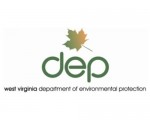West Virginia landowners in Wayne, Cabell and surrounding counties are being contacted by corporate landmen wanting to buy their Rogersville Shale mineral rights or right of access for gas pipelines. Any oil or gas drilling into the Rogersville would be done by very deep fracking — much deeper than drilling in the Marcellus Shale in Pennsylvania or West Virginia.
Fracking for shale gas in our broader region began about ten years ago in  Pennsylvania. So, how is that working out for the people who live in the industrial-fracking areas? An October series by Central PA news outlet PennLive is entitled “PA. regulators fail to protect environment during Marcellus Shale boom.”
Pennsylvania. So, how is that working out for the people who live in the industrial-fracking areas? An October series by Central PA news outlet PennLive is entitled “PA. regulators fail to protect environment during Marcellus Shale boom.”
Below is a summary of their exhaustive investigation.
 One thing we noticed is that locals have a nickname for the PA DEP: Don’t Expect Protection. That’s funny, we have the same nickname here in WV, as well as Department for Every Polluter.
One thing we noticed is that locals have a nickname for the PA DEP: Don’t Expect Protection. That’s funny, we have the same nickname here in WV, as well as Department for Every Polluter.
Pa. regulators fail to protect environment during Marcellus Shale boom
Ten years into the natural gas boom, a PennLive investigation uncovered systemic failures on the part of state regulators to enforce environmental, health and safety standards for the multibillion-dollar industry.
Reporters spent six months reviewing thousands of documents, interviewing dozens of officials and residents, and traveling to towns and well sites throughout Pennsylvania to examine the oversight of Marcellus Shale development.
PennLive found a state Department of Environmental Protection that relied heavily on energy companies to largely police themselves and, in the process, ignored citizens’ constitutional right to clean air and water.
The department designed to “protect Pennsylvania’s air, land and water from pollution and to provide for the health and safety of its citizens through a cleaner environment” failed on a basic level to adhere to its mission.
Here are some of our findings:
- DEP knew frack water impoundments were leaking years before any fines were issued. Documents show DEP knew about leaks and spills since at least 2011, but no fines were issued until 2014, just prior to the Wolf administration taking office.
- Codes the agency uses to test water are designed to leave out certain results. DEP uses a lab code system to test water around oil and gas sites that ensures certain contaminants that might be in residents drinking water will never be reported.
- DEP used a gas company’s wording in what was supposed to be an agency’s expert report. One DEP employee testified that his “expert report” included a conclusion that was not his. DEP’s flawed and incomplete data continues to be used as evidence in court cases and policy decisions.
- After a 2011 agency restructuring that required enforcement decisions to be made in Harrisburg, fines dropped dramatically. Fines issued to drillers decreased 90 percent during the administration of former Gov. Tom Corbett.
- A missing record calls into question the agency’s recordkeeping. Violations were recorded electronically on Aug. 30, 2010, for a leak at an impoundment site. Those alleged violations occurred around the time residents noticed changes in drinking water quality. DEP says, while an inspector noted violations, no notices were issued to the company.










